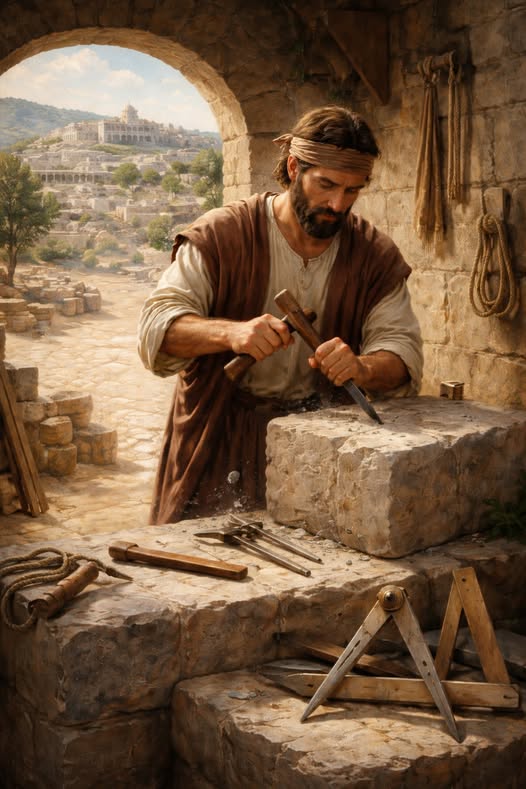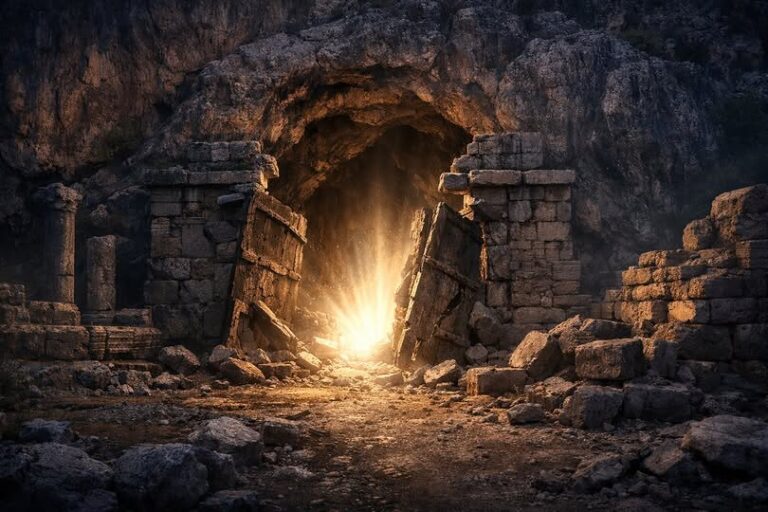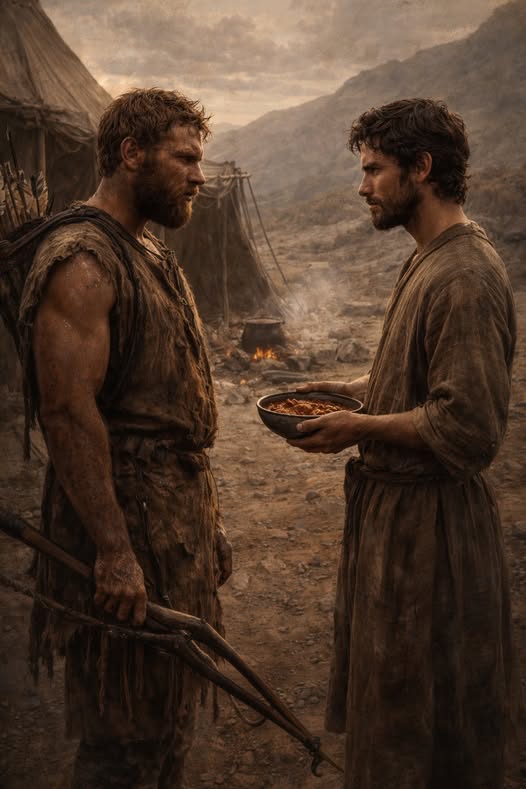
The popular image of eternity in Christ—a disembodied soul in Heaven, passively worshiping forever—falls short of the dynamic, embodied, and glorified future that Scripture actually describes. The Bible teaches that the redeemed are not destined to float in clouds, but to rule and serve alongside Christ in resurrected, glorified bodies. This eternal calling mirrors the heavenly structure God has already established: the divine council, a celestial administration that believers are destined to join.
Resurrection: The reembodied hope of the saints
Christian hope is not merely life after death; it is life after life after death. Paul makes clear in 1 Corinthians 15 that the destiny of believers is resurrection: “The perishable must clothe itself with the imperishable, and the mortal with immortality.” Jesus’ own bodily resurrection is the model for ours, as stated in Philippians 3:21.
This resurrected body is not a return to mortal flesh, but a transformation into celestial flesh: a spiritual body, not in the sense of being non-physical, but as a body fully animated by the Spirit of God. The gospel promise is not the abandonment of our bodies, but their glorification.
A new creation: Not an escape from creation
The biblical narrative culminates not in an escape to Heaven, but in Heaven coming to Earth. God’s intention from the beginning was for humanity to be His imagers on Earth, exercising dominion under His authority (Genesis 1:26–28). That purpose was never revoked; it is fulfilled in Christ and restored in the new creation.
The meek shall inherit the earth (Matthew 5:5), not an immaterial Heaven. The entire cosmos is renewed, and believers are placed into positions of responsibility within it. Eternity, then, is not an unending choir practice, but a recommissioning into what we were created to be: co-rulers under God, participating in the administration of His kingdom.
The divine council: A model of cosmic administration
To understand what it means to reign with Christ, we must understand the concept of the divine council: a biblical theme often overlooked in modern theology. Psalm 82 describes God “presiding in the divine council; in the midst of the gods He renders judgment.” These “gods” (Hebrew elohim) are spiritual beings to whom God delegated authority over the nations (Deuteronomy 32:8–9, as found in the Dead Sea Scrolls and Septuagint).
These beings were originally part of God’s heavenly administration. Some rebelled, hence the condemnation of Psalm 82: “You are gods, sons of the Most High, but you will die like men.” This judgment is not only a condemnation; it is also a hint at replacement.
In Daniel 7:27, after the judgment of these rebellious powers, the authority is transferred to “the saints of the Most High.” Believers, now redeemed and glorified, inherit the role once held by members of the divine council. As Paul writes, “Do you not know that we will judge angels?” (1 Corinthians 6:3). We are not just saved; we are enthroned.
Celestial flesh and eternal dominion
This role is not symbolic or metaphorical. Just as our bodies will be real, so will our responsibilities. Revelation 5:10 declares that God “has made us a kingdom and priests to our God, and they shall reign on the earth.” This reign reflects both priestly access to God’s presence and royal authority to administer His will.
We will be like Christ, the risen King, not just in form, but in function. Luke 19:17 illustrates this in parable form: “Well done, good servant. Because you have been faithful in a very little, you shall have authority over ten cities.” Faithfulness now prepares us to govern creation in eternity.
Restored to Eden’s mandate
The original task of humanity was to “fill the earth and subdue it” (Genesis 1:28), not by exploitation, but by stewarding it under God’s rule. This was interrupted by the Fall, but not abandoned. In Christ, we are restored and recommissioned.
The glorified saints will fulfill what Adam, Israel, and the rebellious sons of God failed to do: reflect God’s wisdom and justice throughout creation. This is a return to Eden, but on a cosmic scale. The New Jerusalem is not merely a garden; it is a city, a symbol of righteous rule and divine presence.
Conclusion
Eternity in Christ is not passive; it is participation in the divine governance of creation. Just as God rules with a divine council, so too will His glorified people become part of that council: sons of God, bearing the image of the glorified Son, administering creation with wisdom, love, and power.
The destiny of the Church is not to spectate, but to reign. Not to escape the material world, but to redeem it. Not to float in formless bliss, but to live fully embodied lives as stewards, priests, and rulers—forever with the King.
Discussion Questions
- How does the concept of the divine council deepen our understanding of what it means to reign with Christ?
- In what ways does our future resurrection body differ from our current body, and what implications does that have for eternity?
- How should the promise of eternal responsibility and reign affect how we live today?
Sources for Further Study
- Michael S. Heiser, The Unseen Realm – Explores the biblical theology of the divine council and its connection to human destiny.
- N. T. Wright, Surprised by Hope – Argues for the bodily resurrection and the renewal of creation as central Christian hopes.
- Brian Godawa, When Giants Were Upon the Earth – Provides accessible insights into the divine council worldview and its implications for eschatology and eternal life.





